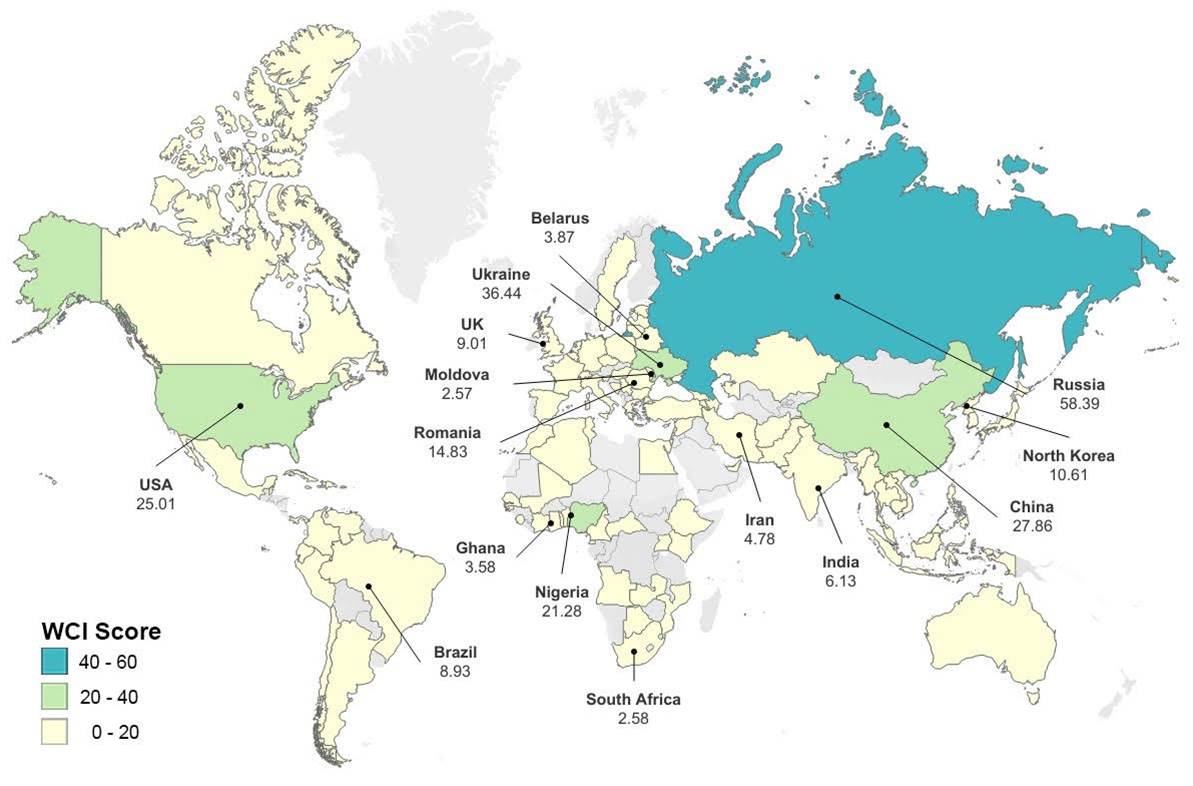Cyber crime is not as fluid or mobile as believed, with international research identifying six hotspots that host the most malicious activity.
An Australia-UK-French research team nominated Russia, Ukraine, China, the USA, Nigeria and Romania as key cyber crime host countries. Australia ranked 34 on the list.
The World Cybercrime Index is designed to let law enforcement and the private sector to concentrate their efforts on “key cyber crime hubs”, co-author Dr Miranda Bruce of UNSW Canberra said.
“The research that underpins the Index will help remove the veil of anonymity around cyber criminal offenders, and we hope that it will aid the fight against the growing threat of profit-driven cyber crime,” she added.
Like other forms of organised crime, cyber crime exists in particular contexts, researcher Professor Federico Varese of France’s Sciences Po said in a statement.
The researchers interviewed 92 experts who specialise in cyber crime intelligence gathering and investigations, who were asked to nominate countries that were sources of different kinds of cyber crime, and rank each country “according to the impact, professionalism, and technical skill of its cyber criminals.”

Oxford university associate professor Jonathan Lusthaus said since attackers are actively hiding, the researchers decided that “the best means we have to draw a picture of where these offenders are actually located is to survey those whose job it is to track these people.”
By seeking to attribute different cyber crimes to their geographies, the researchers believe the public and private sectors will be better able to target what they spend in their responses.
“By continuing to collect this data, we’ll be able to monitor the emergence of any new hotspots and it’s possible early interventions could be made in at-risk countries before a serious cyber crime problem even develops,” Dr Bruce said.
“We are hoping to expand the study so that we can determine whether national characteristics like educational attainment, Internet penetration, GDP or levels of corruption are associated with cyber crime,” Varese said.
The team’s research is published in the Plos One journal.
The Index was funded by EU-backed CRIMGOV, which is hosted at Oxford and Sciences Po.
The other co-authors of the research are Oxford professor Ridhi Kashyap, and Monash University’s Nigel Phair.
Three of the team – Dr Bruce, Lusthaus and Phair – previously researched the available geographical cyber crime data in this 2020 paper [pdf].